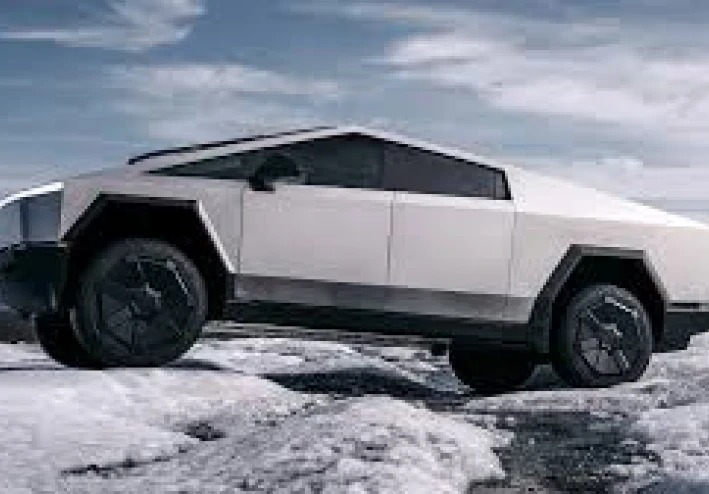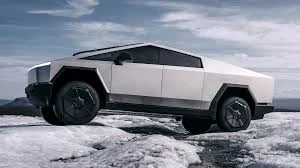
"Charging Ahead: How Tesla and Rivals Are Driving the Electric Future of America"
The Electric Vehicle Revolution
Tesla's Lead and the Race of Rivals
In the past decade, the transportation industry has witnessed a profound transformation. Electric vehicles (EVs), once considered futuristic novelties, have rapidly become mainstream alternatives to traditional gasoline-powered cars. At the center of this transformation is Tesla, the pioneering company that turned the EV dream into a reality. However, as the market grows more lucrative and competitive, a wide range of automakers—both established giants and nimble startups—are entering the arena, challenging Tesla’s dominance and driving innovation forward.
 Tesla: The Disruptive Pioneer
Tesla: The Disruptive Pioneer
Tesla, founded in 2003 by engineers Martin Eberhard and Marc Tarpenning and later led to global recognition by Elon Musk, redefined public perception of electric cars. The launch of the Tesla Roadster in 2008 proved that EVs could be fast, stylish, and exciting. But it was the Model S, Model 3, Model X, and Model Y that truly revolutionized the auto industry, offering extended range, over-the-air software updates, and cutting-edge autonomous features.
Tesla’s Gigafactories have also played a crucial role in reducing battery costs and scaling production efficiently. Its proprietary Supercharger network, now comprising over 50,000 charging stalls worldwide, eliminated one of the biggest concerns for EV drivers: range anxiety. Tesla’s brand, built on innovation and sustainability, has set a high standard that other companies now strive to meet or surpass.
The Rise of Competitors
While Tesla still leads the EV market in the U.S., its monopoly is fading as more companies invest billions into electric mobility.
1. Ford Motor Company
Ford has made bold moves with its all-electric F-150 Lightning, a reimagining of America’s best-selling truck, and the Mustang Mach-E, a crossover SUV that directly competes with Tesla's Model Y. Ford has also announced massive investments in battery plants and electric vehicle production, committing over $50 billion by 2026.
2. General Motors (GM)
GM has pledged to go all-electric by 2035, aiming to release over 30 EV models by 2025. The Chevrolet Bolt and the upcoming Cadillac LYRIQ showcase GM’s capabilities, and its Ultium battery platform offers flexibility for a wide range of future EVs.
3. Rivian
Rivian, a startup backed by Amazon and Ford, focuses on electric trucks and adventure vehicles. Its R1T pickup and R1S SUV are designed for off-road capability and have received praise for design and performance. Rivian's partnership with Amazon to supply electric delivery vans is also a strategic advantage.
4. Lucid Motors
Lucid Motors targets the luxury EV market with its Lucid Air, which boasts a range of over 500 miles—beating Tesla in this key metric. With former Tesla engineer Peter Rawlinson as CEO, Lucid combines elegant design with cutting-edge battery technology.
5. Volkswagen Group
Volkswagen is aggressively expanding its EV portfolio with the ID.4, ID. Buzz, and upcoming ID.7. The company has outlined a €180 billion investment plan focused on electrification and software development.
Challenges in the EV Ecosystem
Despite the rapid progress, the EV industry faces several hurdles:
Battery Supply Chains: Securing raw materials like lithium, cobalt, and nickel remains a challenge.
Charging Infrastructure: While Tesla's Superchargers are widespread, the general charging network still lacks consistency in speed and availability.
Affordability: Many EVs remain priced higher than their gasoline counterparts, although prices are gradually declining.
Additionally, government policies and incentives greatly influence market growth. In the U.S., the Inflation Reduction Act of 2022 provides tax credits for EV purchases, but requirements regarding sourcing and manufacturing can limit eligibility.
The Road Ahead
As climate change continues to dominate global discourse, the shift to electric transportation is not just a trend—it's a necessity. Tesla’s early lead gave it a strong advantage, but the growing competition ensures that the industry will continue to innovate at an accelerated pace.
The 2020s will likely be remembered as the decade when electric vehicles went from niche to norm. With legacy automakers adapting, startups thriving, and governments



































